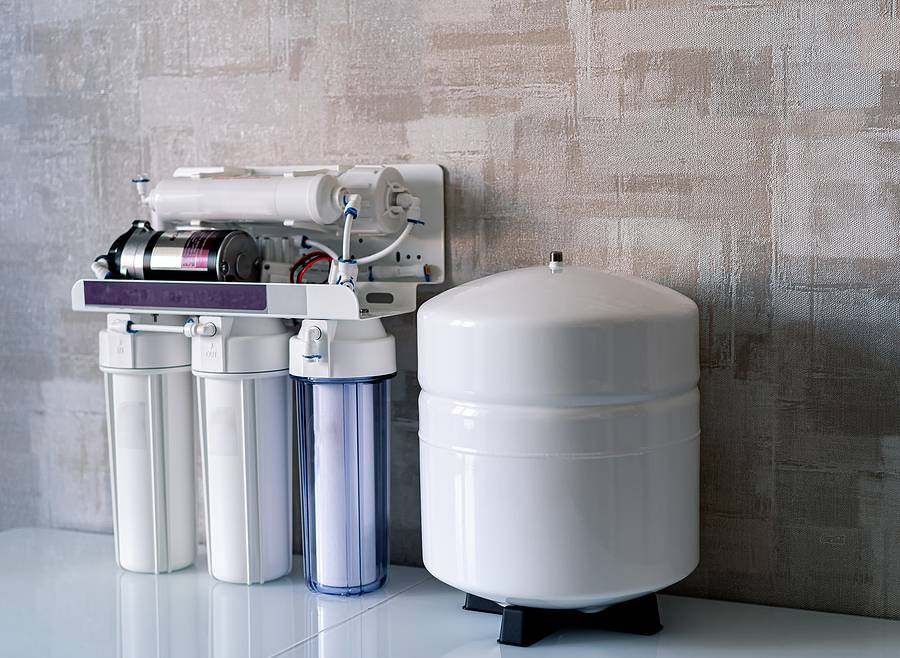Menu
Call This Saturday to Get $50 Off
Do You Need a Plumber in Dallas, TX? Call us Now to Get $50 OFF
4.8 / 5 Ratings based on 1384 reviews Great Plumbers, Great Reviews
Call This Saturday to Get $50 Off
You want to have clean, high-quality, and great-tasting water flowing through your taps. A water filtration system and water softener can make a huge difference in improving the quality of your water. However, there’s a common misconception that water filtration and water softening are similar water treatments. At Mr. Rooter Plumbing, we specialize in the installation of water filters and softeners. In this post, we will help you understand the differences between water filtration systems and water softeners.

As the name implies, a water filtration system is designed to remove impurities, contaminants, and unwanted substances from water. A water filter can effectively remove sediments, chlorine, heavy metals, bacteria, and other harmful substances from water. These systems employ different methods and technologies to purify water, such as activated charcoal, ion exchange, reverse osmosis, UV light, or a combination of different filter media.
A water filtration system significantly improves the overall quality of your water supply by removing impurities, sediment, and contaminants. It ensures your water is safe for consumption and other household uses.
Filtration systems enhance the taste of water by eliminating unpleasant odors and flavors often caused by chlorine, minerals, and organic compounds.
A water filtration system effectively removes any lingering odors or off-putting tastes from your water, making it more enjoyable to drink and cook with.
Water filtration systems are highly effective in removing harmful contaminants like heavy metals, bacteria, viruses, pesticides, and chemicals, ensuring the water you use is safe for your health.
This is one of the benefits of water filtration that many people tend to overlook. By reducing the presence of sediment and mineral deposits in your water, filtration systems help extend the lifespan of your plumbing fixtures, water heaters, and appliances like dishwashers and washing machines.
Filtration systems prevent mineral buildup on dishes and glassware, as well as in sinks and showers.
A water softener removes mineral deposits from hard water. It removes calcium, magnesium, and other minerals from water through a process known as ion exchange. The core of a water softener is a resin tank filled with thousands of tiny resin beads. As the hard water passes through the resin, the mineral ions responsible for water hardness are removed and replaced with sodium or potassium ions. This results in softened water, which is kinder to plumbing systems and fixtures.
Water softeners help maintain the efficiency of your water heater by preventing the buildup of scale and mineral deposits, allowing it to heat water more effectively, and reducing energy consumption.
Softened water is gentler on your hair and skin, as it doesn't leave behind the residue that hard water can. This can result in smoother, softer skin and more manageable hair.
Water softeners prevent the unsightly and damaging buildup of lime scale on plumbing fixtures such as faucets, showerheads, and pipes. This not only extends the life of your fixtures but also reduces the need for constant cleaning and maintenance.
With softened water, soaps and detergents lather more easily and effectively, requiring less product to achieve the desired results. This can lead to cost savings and a reduced environmental impact.
Softened water helps reduce the formation of soap scum, mineral deposits, and water spots on surfaces like glass shower doors, tiles, and dishes. This means less time spent on cleaning and more time for other activities.
If you’re looking for a professional plumbing service to help you install a water filtration system or a water softener, contact Mr. Rooter Plumbing.
The DIY spirit in the U.S. is more alive than ever, with…
Read More+The drainage system in your home is vital for maintaining convenience and the well-being of…
Read More+Leaks are the most common plumbing problems in residential and commercial buildings. However, minor…
Read More+Did you turn on your water, but it had a weak flow…
Read More+